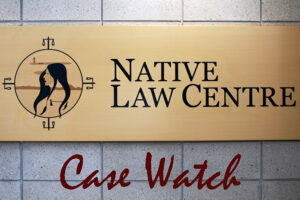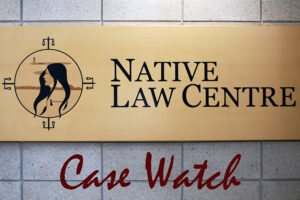Summary judgement granted in part. The defendant is liable to the plaintiff for unpaid services, however, a trial is required to determine the precise amounts owed.
This application is for a summary judgment against the defendant for outstanding invoices issued by the plaintiff for its services rendered between 2011 and 2014. Summary judgment is granted in part that the defendant, a First Nations band, is liable for the unpaid balance of service invoices to the plaintiff, as well as interest on that amount at the rate of five percent per annum. There remains, however, a genuine issue requiring a trial with respect to the precise amount of the unpaid balance.
The federal government through the Department of Crown-Indigenous Relations and Northern Affairs (once known as Indian Affairs and Northern Development) [“Department”], and First Nations band councils, enter into funding agreements. The bands receive funding from Parliament for various earmarked activities through these funding agreements. If a band defaults under a funding agreement, the Minister may take various steps to address the default. This includes, as in this matter, the Department appointing a Third Party Manager who receives federal funding in trust, and manages the funds on behalf of both the band and the Department. This is to ensure that programs and services for band members are not interrupted, and to protect the proper use of public funds. In this matter, the plaintiff worked as a Third Party Manager and was responsible to administer funds in trust on behalf of the Department for the benefit of the defendant’s members.
Already under Third Party Management in 2010, the defendant contacted the plaintiff. The plaintiff was asked to assist the defendant with certain matters relating to account records from previous years, as well as assistance in other various capacities that included ongoing support for the defendant’s conversion out of Third Party Management. The agreement that was entered into between the parties, in which a physical copy was not presented in evidence, stated that the plaintiff’s fees would be billed on the basis of time spent. It stipulated that all outstanding fees were to be paid within 30 calendar days from the date of a received invoice and unpaid sums would be subject to an interest rate of 1.5 percent per month until paid in full.
When the defendant was removed from Third Party Management in 2011, the plaintiff remained working for the defendant to provide co-management services, as is required by the Department as a condition for removal from Third Party Management status. Under co-management, funds were tight. While it was expected that the plaintiff would eventually be paid in full, there was a period when only incremental payments could be made. There is some confusion as to the amount outstanding under the unpaid invoices as there is no identification of the precise amounts owed for the services. The services rendered are described merely as “Consulting”, along with a description of the time spent, but with no other details.
Although the Court is satisfied that a trial is not necessary to find that the defendant is liable for payment to the plaintiff for services rendered, the amount of the unpaid balance under those invoices requires determination at trial. The required evidence to quantify the unpaid balance was not clearly presented. The amount cannot be determined based on the evidence and there is no explanation provided for this, therefore the Court cannot make the necessary finding of fact (Hryniak v Mauldin, 2014 SCC 7).
The plaintiff seeks interest on the amount outstanding, whatever determination that may be, at a rate of 1.5 percent per month. The agreement, however, did not describe this interest rate with an annual equivalent. Given that no annual equivalent for this rate was stipulated in the agreement or the issued invoices, the plaintiff’s claim is contrary to s 4 of the Interest Act and cannot be enforced. S 4 applies in circumstances where the interest is made payable at a monthly rate or at any rate for any other period of less than a year. The interest applicable must be limited to five percent per annum (Bank of Nova Scotia v Dunphy Leasing Enterprises Ltd, 1991 ABCA 351).





